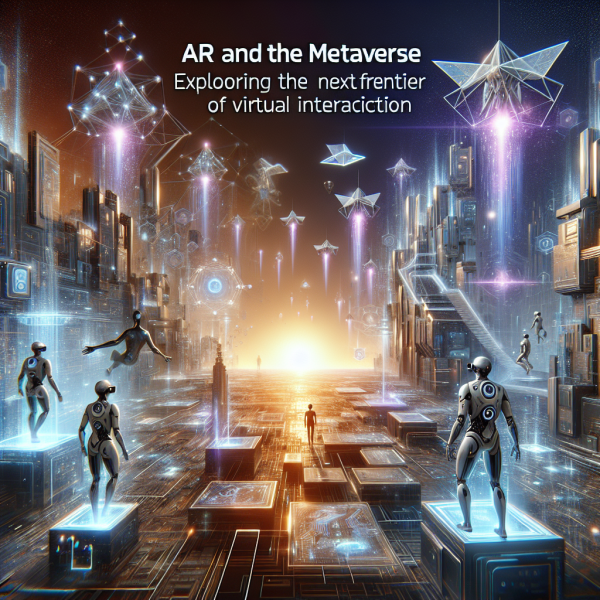Next-Gen Quantum Supremacy: What Recent Findings Mean for Industry and Research

Next-Gen Quantum Supremacy: What Recent Findings Mean for Industry and Research
In recent years, the field of quantum computing has made significant strides toward reaching what is known as "quantum supremacy." This term refers to the point at which quantum computers can perform calculations that are infeasible for classical computers. With recent findings paving the way for next-generation quantum supremacy, both industry and research communities are abuzz with the implications, challenges, and opportunities that these developments present.
A Quick Overview of Quantum Supremacy
The landmark moment of achieving quantum supremacy was first claimed by Google in late 2019, when its 53-qubit quantum processor, Sycamore, reportedly performed a specific task in 200 seconds that would take the most powerful classical supercomputer approximately 10,000 years to complete. This assertion, however, sparked a debate over the validity of the results and the defining parameters of true supremacy. While Google’s claim set a benchmark, subsequent research has aimed to deepen our understanding and application of quantum technologies.
Recent Findings and Their Significance
Recent breakthroughs have pushed the boundaries of quantum computing further. Researchers from various institutions have announced advancements in qubit coherence times, error correction, and overall architecture of quantum processors. One particularly notable development comes from superconducting qubits, which have demonstrated significantly longer coherence times – allowing computations to be sustained for more extended periods without errors. These improvements have led to increases in both the size of problems quantum computers can tackle and the fidelity of the results they produce.
Moreover, researchers have also unveiled novel quantum algorithms specifically designed to exploit the unique capabilities of quantum hardware. These algorithms could potentially outperform classical counterparts in fields such as optimization, cryptography, and complex system simulations.
Implications for Industry
The implications of these findings are profound across multiple sectors:
-
Computational Science: In materials science and pharmaceuticals, quantum computing could revolutionize the ability to model complex molecular interactions and predict the properties of new materials. This capability could drastically reduce the time required for drug discovery and material innovation.
-
Cryptography: As quantum computational power increases, current encryption techniques that rely on the difficulty of certain mathematical problems will become obsolete. New encryption methods, quantum-resistant algorithms, are being developed in anticipation of this shift, prompting a race among IT and cybersecurity firms to secure their systems against future quantum threats.
-
Artificial Intelligence: Quantum computing has the potential to dramatically accelerate machine learning algorithms, enabling models that can analyze vast datasets beyond the capabilities of classical computers. Industries ranging from finance to autonomous driving could see a paradigm shift in how data is processed and insights are derived.
- Logistics and Optimization: Quantum algorithms have shown promise in solving complex optimization problems much faster than classical methods. Industries including transportation, manufacturing, and supply chain management are poised to benefit from more efficient routes, inventory management, and production processes.
Challenges Ahead
Despite the excitement, several challenges remain to be addressed before quantum supremacy can be applied broadly in industry:
-
Error Rates: Quantum computers are still highly susceptible to errors caused by environmental factors. While error correction techniques are advancing, they require significant overhead that increases the number of physical qubits needed to efficiently run calculations.
-
Scalability: Current quantum systems are often limited in the number of qubits they can effectively manage. Developing scalable architectures that maintain high coherence and low error rates will be crucial as researchers and companies push toward practical applications.
- Talent and Infrastructure: There is a pressing need for skilled professionals who understand both quantum physics and computer science. Moreover, the current computational infrastructure must evolve to accommodate hybrid systems capable of leveraging both classical and quantum approaches.
Future Directions
The quantum landscape is evolving rapidly, and while we may not yet be at a point of full-level quantum supremacy across all fields, the path forward is marked by promising interdisciplinary collaborations between academia and industry. Companies like IBM, Microsoft, and start-ups such as Rigetti and IonQ are working closely with universities and research labs to accelerate the translation of fundamental research into real-world applications.
In conclusion, next-gen quantum supremacy represents a significant milestone in the march toward practical quantum computing. The recent findings underscore the transformative potential of quantum technologies across various sectors while highlighting key challenges that must be addressed. As researchers continue to unlock the mysteries of quantum mechanics, the synergy between innovation and applications will shape the next era of computational power, making it imperative for industries to stay attuned to these advancements. The future of computing is quantum, and its ramifications are set to be as profound as the technology itself.













